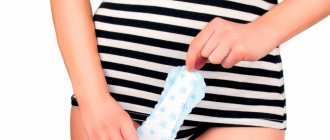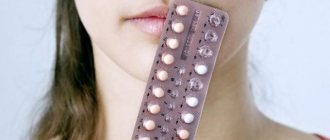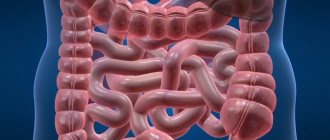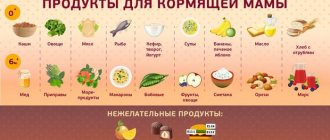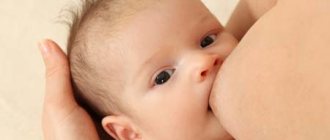Women often complain of very rapid weight loss after childbirth, especially when breastfeeding. This usually indicates a thyroid problem. Although losing weight after childbirth is desirable and often very desirable for many women, if it happens faster than you expect and you also feel problems with your heart, then this may indicate a thyroid disease. During a postpartum examination with a gynecologist, thyroid dysfunction can be diagnosed.
Why do I lose more weight after childbirth than I would like?
There are many reasons for losing weight after having a baby. Sometimes, even if you recently had a baby, they may not be related to childbirth at all. We'll talk about this later. In the meantime, we will talk specifically about postpartum weight loss. Why do some women lose weight after childbirth?
Firstly, weight loss is a completely natural hormonal change in the body. It can affect different women in completely different ways depending on hereditary predisposition, in fact, the existing constitution, lifestyle, dietary preferences and many other factors.
Secondly, a sharp change in exercise regime prevents you from gaining weight. As a rule, pregnancy is characterized by a calm, measured lifestyle, limitation of various types of stress, and many pleasant emotions that relatives and friends try to evoke in the expectant mother. But then the child was born - and everything began to spin at a new pace, which was by no means gentle for the mother. Feeding, walking, going to the doctor, exercising, bathing, lack of sleep, as well as washing, ironing, cooking, cleaning - all this completely absorbs a woman and, naturally, affects her figure. The body is exhausted and there is simply not enough strength to gain weight.
Another reason for a sharp weight loss after childbirth can be depression, during which a mother can simply ignore her normal diet and, as a result, lose weight. It should be noted that in this case it would not be amiss to seek the help of specialist psychologists. This way you will save energy and keep the whole family calm. And, most importantly, provide the child with the opportunity to communicate with a healthy, loving and caring mother.
Some women are so afraid of gaining weight and ruining their figure that literally from the first days after the baby is born they resort to different diets. (Let’s say right away that during this period much more attention should be paid to a healthy, balanced diet (preferably small and non-allergenic) and sleep and wakefulness.) So, you should wait about six months with weight loss diets. Since it is during the period from 3 to 6 months that the weight of a young mother “melts” most actively. If you add a sharp restriction in nutrition to postpartum stress, then the kilograms can really begin to disappear very quickly and, moreover, not only the extra ones. Let us also draw your attention to the fact that a diet for weight loss may not have a positive effect on the taste, nutritional and immunostimulating properties of breast milk if you intend to breastfeed your child. Therefore, excessive enthusiasm for dieting in the first months after childbirth can “drive the body into a corner” and lead to the opposite problem, forcing a woman to think about how she can gain weight after childbirth.
Read also:
How to quickly restore your previous figure after pregnancy and childbirth
Active breastfeeding may well be the reason why a woman quickly lost weight after giving birth recently. It’s no joke: during the day, a woman’s body spends about 500 calories to produce breast milk! And this is not counting the other loads that fall on the mother’s shoulders.
And when breastfeeding, there is a decrease in the volume of the hips, which also plays an important role in the process of losing weight. But this factor should not at all become a reason for refusing to feed!
Healthy Ways to Lose Weight While Breastfeeding
The process of losing weight while breastfeeding needs balance.
You must create a calorie deficit to lose weight, but cutting calories too sharply can make it difficult to get enough nutrients and leave you feeling tired and hungry. In addition, eating too little food can make it difficult to produce enough milk (,).
Here are some tips to help you lose weight in a healthy way:
- Eat less, but not too little : Breastfeeding mothers should avoid eating less than 1,500 to 1,800 calories per day. This allows you to consume enough nutrients and avoid producing too little milk ().
- Eat foods rich in protein and fiber : Replacing processed foods with foods rich in protein and fiber can help reduce hunger and keep you feeling full longer (,).
- Exercise : Although some women are afraid to exercise, moderate exercise is unlikely to negatively affect milk production. A combination of diet and exercise helps breastfeeding mothers maintain muscle mass (,).
- Keep nutrient-dense foods on hand : Research shows that you are more likely to eat foods that are visible or easily accessible. So stock up on nutritious snacks and keep chopped vegetables and fruits in sight ().
- Stay hydrated : Drinking enough fluids—especially unsweetened drinks like water—is important for your milk production. It can also help you lose weight by filling your stomach and making you more energetic (, ,).
- Eat slowly and mindfully : Eating in less than 20 minutes or being distracted while eating can cause you to eat 71% more calories. Try sitting and tuning in while you eat instead—ideally while your baby is sleeping (, ,).
- Sleep when you can : Sleep deprivation can increase hunger and food cravings. Try to compensate for the lack of sleep by scheduling at least a few 30-minute naps while your baby is sleeping (, ,).
Summary:
The tips above can help you lose weight while breastfeeding while still providing you and your baby with essential nutrients.
If you are losing weight for other reasons...
A young mother lost a lot of weight after giving birth: what other reasons could there be? Here we will talk about purely medical reasons, namely diseases that often appear after childbirth (and not only) and can directly affect weight loss.
One of the most common problems leading to rapid weight loss is thyroid dysfunction. The most common disorder during the postpartum period is hypothyroidism, or decreased thyroid function. Its most characteristic manifestations include rapid heartbeat (more than 100 beats per minute) and weight loss that interests us. It should be noted that if you carefully visit your gynecologist and carefully monitor yourself, this problem is not difficult to diagnose during a routine examination. Along with weight loss, signs of hypothyroidism also include fatigue, depression, muscle pain, and forgetfulness.
Severe thyroid dysfunction (or hyperthyroidism) during childbirth is somewhat less common than during pregnancy. Here you need to pay attention to the appearance of the following set of symptoms: increased nervous excitability, sweating, restlessness, rapid pulse, sweating, sometimes nausea and vomiting.
At risk in this case are women who are overweight, have type 1 diabetes, autoimmune thyroid diseases, and have a family history of thyroid diseases.
Banal parasites also often cause rapid weight loss. As a rule, a mother who has just given birth to a baby does not even think about the possibility of the existence of this reason. Often, precisely because “this can’t happen to me,” we miss the first signs of damage to the body by a parasite. After some time, the course of the disease goes from asymptomatic to the acute phase (with loss of appetite, nausea, vomiting, abdominal pain, etc.). And then the weight begins to decrease quite quickly.
One of the reasons for rapid weight loss after childbirth is impaired liver function and, in particular, the body’s inability to produce enough bile and metabolize consumed fats. Sudden weight loss here is associated with decreased appetite, nausea and vomiting.
Stomach prolapse caused by weakening muscles after childbirth can also make a woman think about how she can still gain some weight.
In addition, a number of factors influencing unexplained weight loss may include cancer, adrenal dysfunction, diabetes, colitis, gastritis and other diseases that actively manifest themselves and conquer the female body during the postpartum period.
Risk increases with age and excess weight
Stress caused by modern lifestyle is certainly a dominant risk factor, but we must keep in mind that certain groups of women are more prone to thyroid problems.
primarily includes
- family history of thyroid disease
- as well as those who suffer from type 1 diabetes
- or some autoimmune diseases
which are often associated with autoimmune diseases of the thyroid gland (vitiligo, adrenal insufficiency, hypoparathyroidism, atrophic gastritis, pernicious anemia, systemic sclerosis, systemic lupus erythematosus, Sjogren's syndrome).
Obese women with a body mass index (BMI) over 40 or those who weigh 20 percent more than the standard are at additional risk.
The risk increases with age, most likely in people over 30 years of age.
How to stop weight loss and gain the desired kilograms?
First of all, the woman who gave birth should be provided with an optimal sleep schedule, nutrition, walking, and a gentle load of housework (if there is such an opportunity, it would be nice to have an au pair or nanny in the first two to three months).
Read also:
What a woman should know and do to avoid ruptures after childbirth
A serious obstacle to the recovery of a young mother’s body is lack of sleep. Therefore, the role of the father in ensuring adequate rest for a recent woman in labor is very important. It is he who will be able to help his wife at first: change the baby’s diaper, change the baby’s diaper, rock him to sleep, and present him for feeding.
Adequate sleep promotes faster restoration of strength and functions of all systems and organs, including the gastrointestinal tract.
As a result, the food consumed by the body, vitamins and microelements are absorbed more efficiently and the missing kilograms are gained faster.
A healthy, balanced diet, preferably frequent and in small portions, also contributes to more active weight gain.
Positive emotions, a calm, friendly atmosphere in the family or, simply put, minimizing stressful situations and worries. All this is also a prerequisite for the young mother (and with her the child) to feel good.
Other benefits of breastfeeding for mom and baby
Breastfeeding offers several other benefits:
- Provides ideal nutrition for children. Breast milk contains everything your baby needs in the first months of life, including immune-boosting antibodies (, ,).
- Protects your baby from diseases. Breastfeeding helps protect your baby from ear infections, colds, diabetes, leukemia, and even some allergies ().
- May prevent childhood obesity. Breastfeeding helps babies regulate their own milk intake, promotes healthy weight gain, and can protect your baby from childhood obesity (,).
- May promote brain development. Breastfeeding is associated with higher intelligence scores and may be particularly beneficial for brain development in premature babies (, , ).
- Helps restore uterine health. Breastfeeding stimulates postpartum uterine contractions, which can minimize bleeding and help your uterus return to its pre-pregnancy size (,).
- Reduces the risk of depression. Mothers who breastfeed tend to have a lower risk of postpartum depression. However, other factors may also be influential (, ).
- May reduce the risk of disease. Breastfeeding may reduce the risk of metabolic syndrome, high blood pressure, arthritis, heart disease and diabetes, as well as breast and ovarian cancer (, , ,).
- Saves time and money. Breastfeeding is free and requires virtually no equipment. It is easily tolerated and brings pleasure. You don't have to worry about heating or cleaning bottles.
Breastfeeding offers many additional benefits for mother and baby beyond weight loss. This includes the development of the child’s brain, faster postpartum recovery, and protection against obesity and disease.
If the reasons are medical and you cannot recover...
If you are experiencing some of the symptoms listed above (palpitations, restlessness, nervousness, nausea, vomiting, food aversions or lack of appetite), and if your weight continues to drop rapidly despite your appetite being very good, it is still worth contacting to the doctor. For starters, this could be a gynecologist or therapist. After identifying clearer manifestations of the conditions that concern the woman, the doctor will refer her to a specialized specialist (endocrinologist, gastroenterologist, psychologist, oncologist, etc.), who will prescribe adequate treatment.
Very often, weight gain is limited to a properly selected diet, gentle hormonal therapy, or the work of a psychologist or psychotherapist (in the case of depression or stress). There is a high probability that you will simply be advised to rest more, organize your daily routine in such a way that you have enough time for yourself, and redistribute some household responsibilities among family members.
Checking hormones
Quite rarely, but it happens that a woman is unable to lose weight after breastfeeding, although all methods have already been tried. In this case, the cause of the problem may be hormonal imbalances in the body - this occurs in approximately 5% of cases of postpartum obesity. To solve this problem, you should contact an endocrinologist who will conduct the necessary studies and prescribe appropriate treatment.
Minimal examinations: analysis of blood sugar levels, insulin, lipid profile, TSH.
Diet for “fatness” or Where are the calories found?
If a mother has lost a lot of weight after giving birth, how can she get better quickly?
Of course, the diet should be more high in calories. To the 1500 calories usually needed by a woman with a normal weight, you need to add another 500-600, which, as we have already said, are required for milk production. To get better, we awaken the desire to eat. To stimulate appetite and improve digestion processes, half an hour before meals, eat a green apple or 100-150 grams of grapes. And in cooked dishes, use spices that enhance the taste and thus stimulate the appetite: cinnamon, garlic, saffron, onion.
Include meat broths in your diet: they are quite high in calories and are easily digestible.
Protein shakes made from cottage cheese are good for gaining weight. It is mixed with milk and banana, cream (not very fatty) and fruit syrup.
During the period of weight gain, you should eat dairy and fermented milk products, which are commonly called fatty foods. But you shouldn’t go too far, so as not to gain too much weight and cause additional problems.
You need to eat often enough, in small portions - about 6-8 times a day. In this case, a food diary will be a significant help. In it you need to record what and at what time you ate and how many calories you got from eating. This diary can also be used to record your weekly weight changes.
Read also:
Swelling that appears after childbirth usually goes away within the first week
Such records will allow you not only to control the number of calories you consume, but also to optimize your diet and make it more effective by adding foods to your diet that contribute to the most active weight gain.
Let the gained kilograms be useful...
...That is, they are transformed into muscles, and not into fat. This simply requires optimal physical activity. Here we do not mean exhausting household work and lugging bags from markets and shops: regular walking at a moderate pace in the fresh air (by the way, you can use a stroller).
Do not overeat under any circumstances, and do not exceed the so-called “calculated” volumes. If between main meals you feel hungry, it’s not a sin to have a little snack: eat a slice of white bread with cream cheese, drink a small cup of cocoa, or maybe just limit yourself to a banana or a sweet pear; Nuts, dried fruits, and a piece of chocolate will help a lot.
Remember, your diet should be varied, rich in vitamins and include: meat (beef, lean pork, rabbit, nutria), fish (if possible also fatty, unless, of course, it is an allergen for you and your baby), eggs, cereals (buckwheat, pearl barley, wheat, rice), greens (lettuce, spinach, parsley, dill), vegetables, sweet fruits. And it is best to eat all this according to a pre-prepared plan. Simply put, create a menu for your loved one, calculate the portions: this will make it easier to purchase groceries, plan expenses, and you won’t rack your brain every day about what to cook. By the way, your family may like this menu for weight gain and, moreover, benefit them.
While gaining weight and breastfeeding, you should not eat foods that contain flavor enhancers, preservatives, or GMOs.
In other words, try to eat natural foods.
Prepare food in healthy ways. Use a grill, oven, or steamer. Such methods not only allow you to prepare healthier food, but also save time and the dishes turn out tastier.
We hope we have expanded your knowledge a little on the topic “How to recover after childbirth.” But every woman, every organism is individual. And if mommy has lost a lot of weight after giving birth, then the best adviser here is still a professional nutritionist.
And one more thing: you are not eating and gaining weight alone - your child is with you. Therefore, be attentive and observant not only towards yourself. Keep a close eye on your baby's weight and well-being.
Be healthy and attractive! Eat tasty and healthy!
